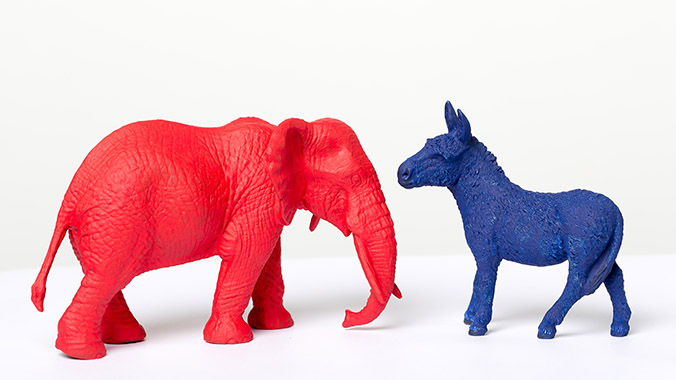The U.S. Presidential Election and New Global Engagement

On Tuesday, November 8th, citizens in the United States will elect a new President. While the world has always expressed an interest in U.S. politics, the present election has had an unprecedented reach. Republican candidate Donald Trump and Democratic candidate Hillary Clinton have become daily figures in our lives, appearing in news coverage, satire, and critique across the spectrum of media. During 2016, the University of Turku’s John Morton Center for North American Studies has focused on the U.S. elections as a cultural, societal, and political process – and what a process it’s been!
This election year has gone far beyond conventional politics. From the hotly contested election primary season that gave rise to the “Bernie or Bust” movement on the Democratic side and the crowded and fierce Republican nominee battleground on the other, it was clear that this election was not going to be about the status quo. Now, with Trump, a reality TV star and self-proclaimed billionaire candidate, running against the baggage-laden Clinton, who stands as the first woman presidential candidate, new ground has been laid. Instead of substantial debate around key policy issues, this election race has focused on identity politics and emotions.
Populism has been a driving force of the U.S. elections, reflecting a broader global trend, as also evidenced by the rise of nationalist parties and the Brexit movement. Populists on both the political Left and Right feel disenfranchised by the political establishment and are frustrated by the changes they see as corrupting their values and idealized versions of U.S. society. In the vehement proclamations of “us versus them,” an atmosphere of anger and intolerance has flourished.
This fall, UN Human Rights Chief Zeid Ra’ad Al Hussein called out the fear and hatred fueled by Trump and other populist leaders for the dangerous path they tread toward “colossal violence.”[1] Violence has, indeed, been a characteristic of the election, from hostile rhetoric, to physical violence at campaign rallies, to allegations of sexual assault. Clinton’s foreign policy record in the Middle East has cost many civilian lives, while Trump advocates the use of nuclear weapons and torture. We watch and wait, as the election has repercussions for us all. For many, Obama’s “Hope” has become a feeling of hopelessness.
This has been a social media election and we have been able to follow it unfold in real time. The candidates, media pundits, and ordinary people have all participated in creating the culture of the election. From the user-generated “Bernie’s Dank Meme Stash” to Donald Trump’s prolific Twitter account, we have shared and “liked” the election like never before. Media has taken its cues from social media, and offers us the candidates and election events in snippets and clips that allow us to frame the conversations to our liking.
In just a few short weeks, either Hillary Clinton or Donald Trump will be elected as the next President of the United States. The long and dramatic campaigns will be over, but U.S. politics and (global) citizen engagement will never be the same.
This leads us to wonder: what’s next and what will the broader implications of the election be? To tackle these questions, the John Morton Center is wrapping up its theme year with a public symposium on 11.11, “The Results Are In: Post-Election Analysis.” Researchers, members of the media, and keynote speakers Jörn Donner and Nicholas Kralev will reflect on what this unprecedented election means. The event is free and open to the public, and will be held in Elovena Hall at the Turku School of Economics from 9:15–18:00.
Samira Saramo
Post-Doctoral Researcher, John Morton Center for North American Studies
[1] Speech at The Hague, September 5, 2016.
